Which is better for your health: Avocado oil or Extra virgin olive oil?
It’s no secret that avocado oil and Extra virgin olive oil are both healthy options to add to dishes and recipes, but which is better for your health? In this article we take a look at the two types of oil side by side and compare which is best for your health, discuss the numerous health benefits offered by olive oil and avocado oil, plus we also look at which oil is better to use for different types of cooking and baking.
First, it is worth mentioning that both avocado oil and extra virgin olive oil (EVOO) are healthy choices, each with its own unique benefits. Which is better for you will depend on how you cook or use oil in your meals. EVOO and Avocado oil have differing smoke points making one better than the other for high-heat cooking. If you are after flavor, then a good quality EVOO will offer a richer and more intense flavor.
There are trade-offs to both oils and we take a look at each in more detail so you can make more informed choices to find the best option for your cooking, and your health.
Table of contents:
How Much Oil You Consume
Extra virgin olive oil is a part of the Mediterranean diet and you might be surprised how much is consumed by someone living in the Mediterranean (we will discuss consumption and how much oil is good for later in the article).
Both oils are available in a range of packaging and sizes, with oil sprays (or mist sprayers) being a popular choice for those wanting to sparingly use oil while cooking. Large bottles (around 3-5 liters) are also popular throughout the Mediterranean and offer a more economical way of buying good quality oils.
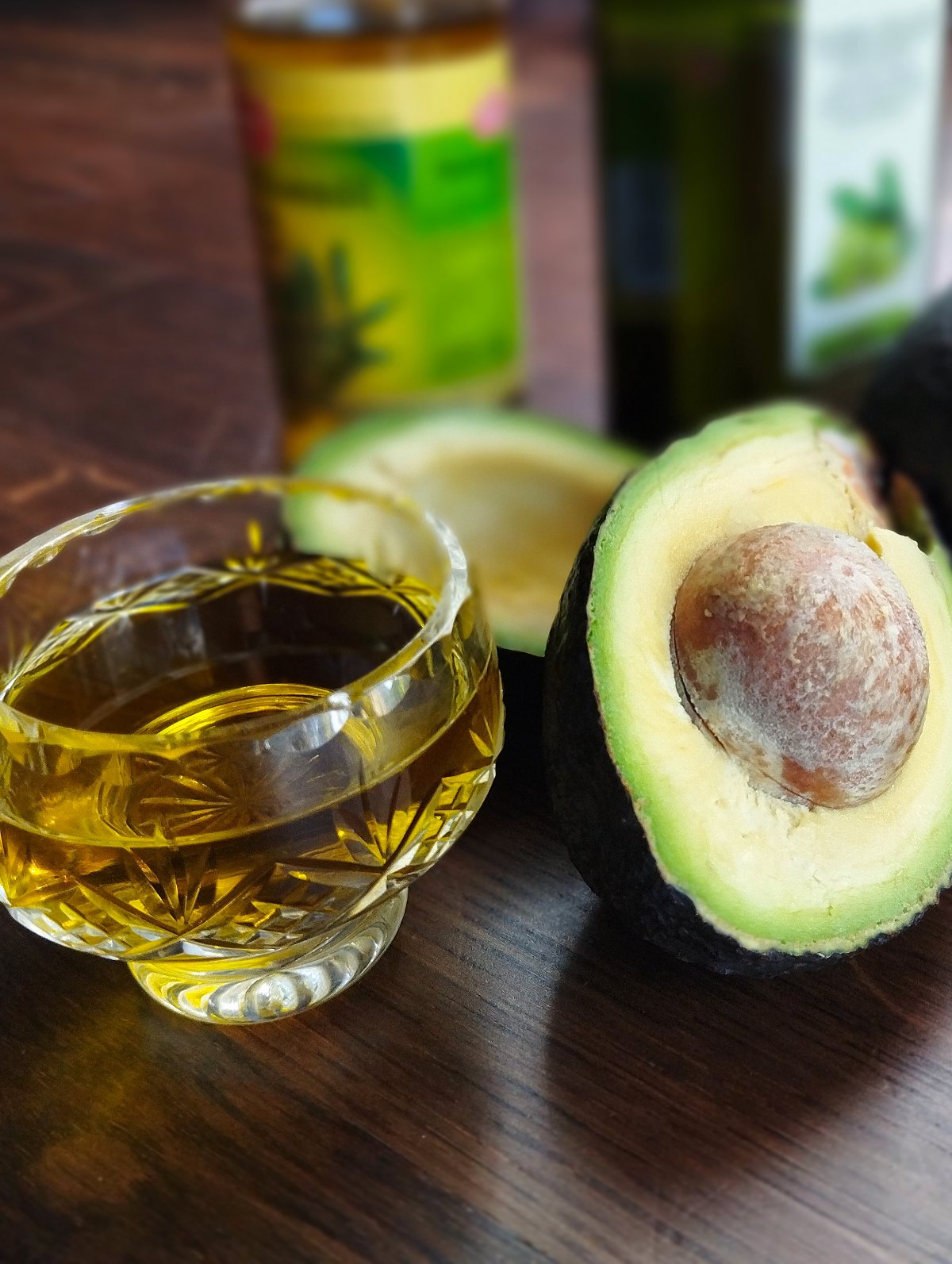
Health Benefits
Avocado Oil
Avocado oil is a nutrient-rich oil that offers a range of health benefits, making it a valuable addition to a healthy diet. Like extra virgin olive oil, avocado oil is high in monounsaturated fats, particularly oleic acid, which is known for its heart-protective properties.
Consuming avocado oil can help lower bad LDL cholesterol and increase good HDL cholesterol levels, which contributes to a reduced risk of cardiovascular diseases such as heart attacks and strokes.
Its high monounsaturated fat content also supports a healthy inflammatory response in the body, which is crucial in preventing chronic conditions related to inflammation.
Chosen Foods 100% Pure Avocado Oil for Cooking
One of the standout features of avocado oil is its impressive array of vitamins and antioxidants, particularly vitamin E, which is essential for skin health. Vitamin E, along with other antioxidants found in avocado oil, helps protect the skin from oxidative stress and damage caused by UV radiation, contributing to healthier, more resilient skin.
Avocado oil also supports overall metabolic health. Its composition of healthy fats, along with its content of lutein, a powerful antioxidant, makes it beneficial for eye health, potentially reducing the risk of cataracts and age-related macular degeneration. Moreover, studies suggest that the consumption of avocado oil may help regulate blood sugar levels, making it a good choice for individuals managing diabetes or those looking to stabilize their energy levels throughout the day.
Key Health Benefits of Avocado Oil:
- Heart Health: High monounsaturated fat content helps lower bad cholesterol (LDL) and increase good cholesterol (HDL).
- Nutrient Absorption: Helps in the absorption of fat-soluble vitamins (A, D, E, K) and antioxidants from other foods.
Skin Health: Vitamin E and other antioxidants support skin health and wound healing.
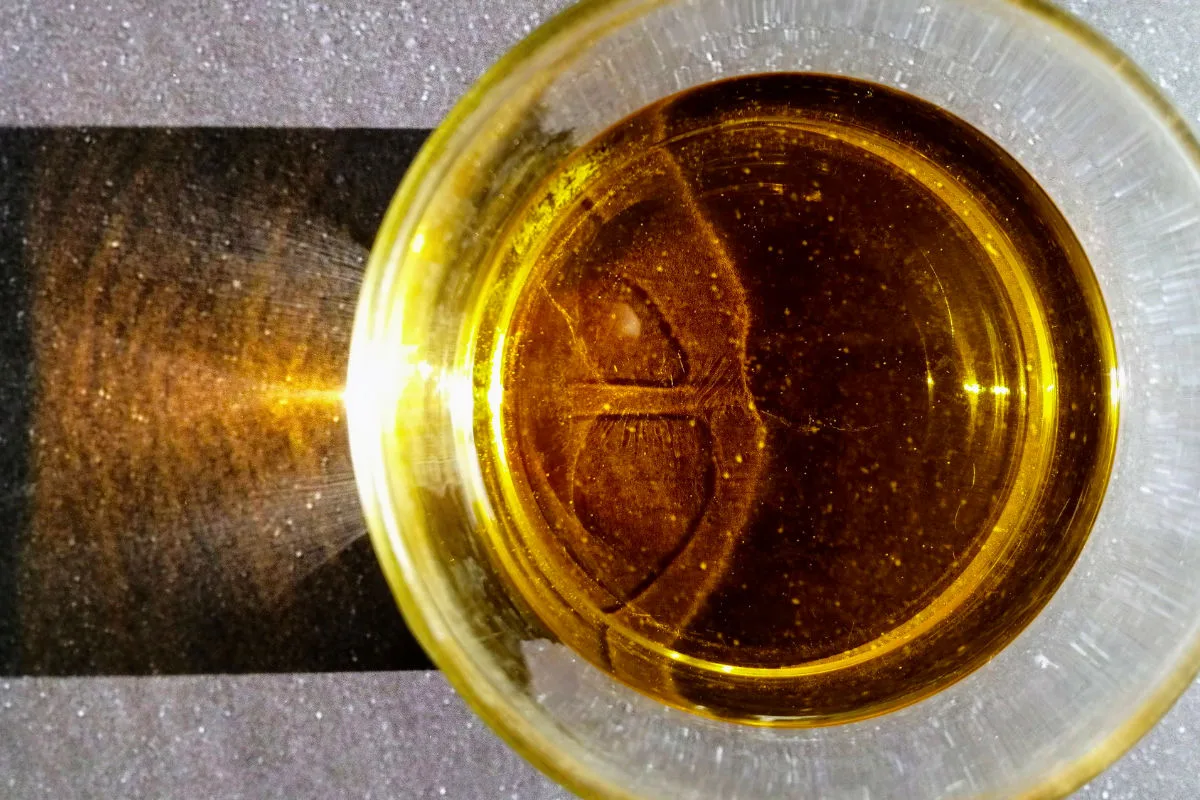
Extra Virgin Olive Oil
Extra virgin olive oil (EVOO) is widely regarded as one of the healthiest oils available, thanks to its unique composition and numerous health benefits.
Rich in monounsaturated fats, particularly oleic acid, EVOO helps reduce inflammation and may lower the risk of chronic diseases such as heart disease. This type of fat has been shown to improve blood lipid profiles by reducing levels of bad LDL cholesterol and increasing good HDL cholesterol, which can help prevent the buildup of plaques in the arteries, a key factor in cardiovascular health.
- Extra Virgin Olive Oil (Spain)
- Extra Virgin Olive Oil (Greece)
- Extra Virgin Olive Oil (Italy)
EVOO is a potent source of antioxidants, including vitamin E and phenolic compounds, which protect the body from oxidative stress. Oxidative stress occurs when there is an imbalance between free radicals and antioxidants, leading to cell damage and contributing to the aging process and the development of diseases like cancer.
The antioxidants in EVOO help neutralize these free radicals, reducing the risk of chronic conditions and supporting overall well-being.
Key Health Benefits of EVOO:
- Heart Health: Rich in monounsaturated fats and polyphenols, which reduce inflammation and lower the risk of heart disease.
- Anti-inflammatory Properties: Polyphenols have strong anti-inflammatory effects, beneficial for conditions like arthritis.
- Cancer Prevention: Antioxidants in EVOO may help protect against certain types of cancer.
In addition to heart and cellular health, EVOO has been linked to better brain function. The anti-inflammatory and antioxidant properties of EVOO are believed to protect against cognitive decline and neurodegenerative diseases like Alzheimer’s.
Studies suggest that the Mediterranean diet, which is rich in EVOO, is associated with a lower incidence of dementia and improved memory and cognitive function as people age.
EVOO is also beneficial for digestive health. It has been shown to support gut health by enhancing the growth of beneficial bacteria and reducing inflammation in the digestive tract. This can lead to improved digestion, reduced symptoms of irritable bowel syndrome (IBS), and a lower risk of gastrointestinal diseases.
Additionally, the oleic acid in EVOO has been found to have a protective effect on the liver, helping to prevent liver damage and support its vital functions.
Nutritional Profile
Here’s a comparison to help you decide which might be better for your health based on your specific needs:
Avocado Oil
- Monounsaturated Fats: High in heart-healthy monounsaturated fats, particularly oleic acid.
- Vitamins: Rich in vitamin E, which is an antioxidant.
- Omega-6 to Omega-3 Ratio: Moderate ratio, which is beneficial if balanced with other sources of omega-3 in the diet.
- Smoke Point: High smoke point (~520°F or 271°C), making it excellent for high-heat cooking like frying and grilling.
Extra Virgin Olive Oil
- Monounsaturated Fats: Also high in monounsaturated fats, especially oleic acid.
- Antioxidants: Contains polyphenols and antioxidants, which have anti-inflammatory properties.
- Vitamins: Good source of vitamin E and K.
- Omega-6 to Omega-3 Ratio: Low ratio, generally considered beneficial for health.
Smoke Point: Lower smoke point (~375°F or 190°C), making it better suited for low to medium-heat cooking and raw applications like dressings.
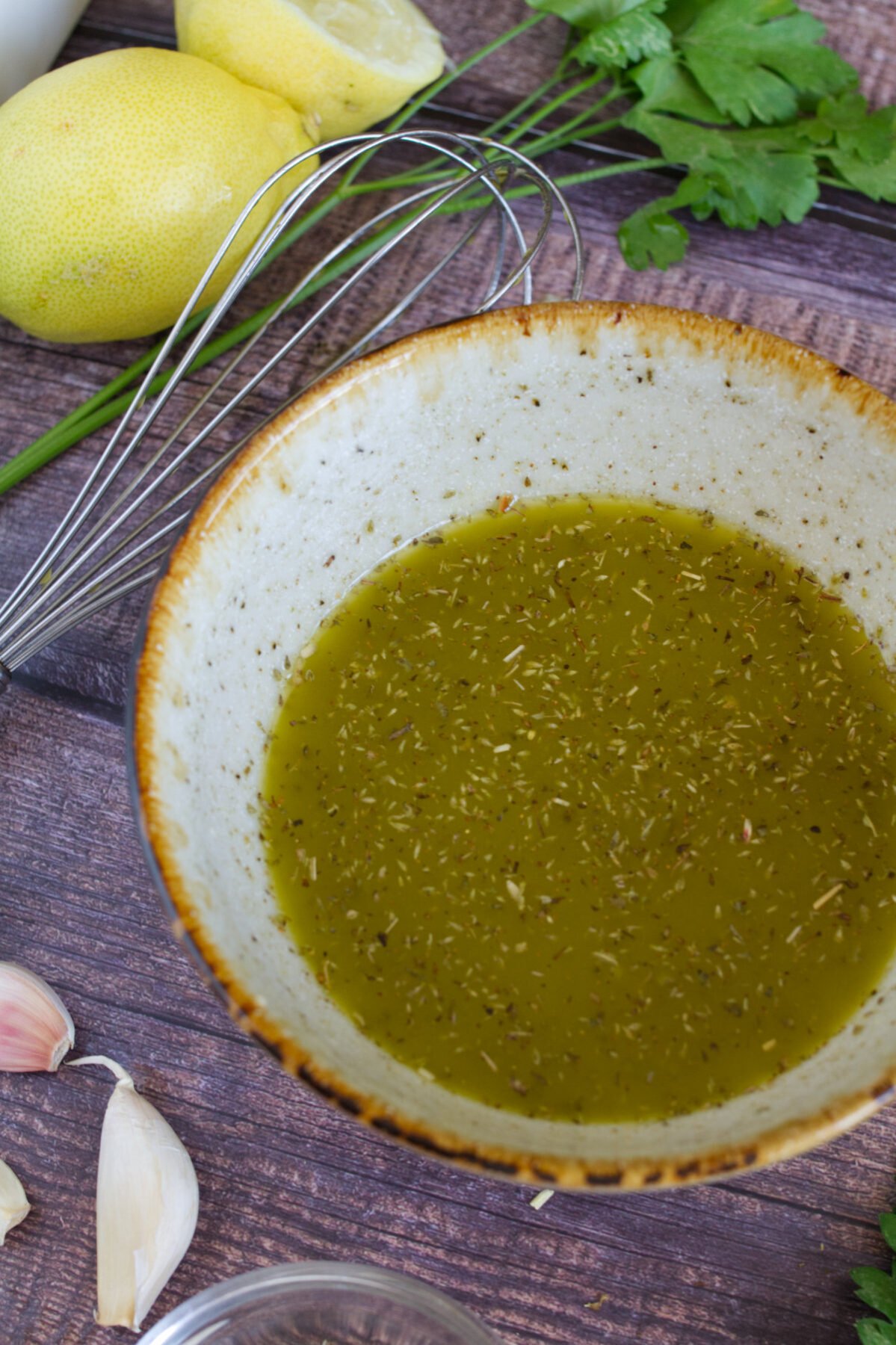
Practical Uses
Which oil is best to use depends on what you are cooking or preparing. Ultimately, both avocado oil and extra virgin olive oil are healthy options, and the best choice depends on your specific culinary needs and health goals. Using a combination of both can help you take advantage of their unique benefits.
- Avocado Oil: Best for high-heat cooking methods (frying, grilling, roasting) due to its high smoke point. Also good for salad dressings and as a drizzle over dishes.
- Extra Virgin Olive Oil: Ideal for low to medium-heat cooking (sautéing, baking) and perfect for salad dressings, dipping, and drizzling over finished dishes.
Which is Better?
- For High-Heat Cooking: Avocado oil is preferable due to its higher smoke point.
- For Maximum Health Benefits: Extra virgin olive oil, with its rich antioxidant content and anti-inflammatory properties, is often considered more beneficial.
- Overall Versatility: Both oils are excellent choices, and incorporating both into your diet can provide a wide range of health benefits.
If you’re new to olive oil, extra virgin olive oil (EVOO) is the one to choose. It’s the healthiest option because of how it’s processed, and while it’s the most expensive, a little goes a long way.
Most experts suggest consuming it raw to preserve its nutritional properties and maximize its health benefits. That said, you can still cook with EVOO, as it’s a stable oil for low-temperature cooking. Whenever possible, try replacing other fats with olive oil, as it’s generally a healthier choice, even when used in cooking.
If you enjoy salads, a simple way to start incorporating EVOO into your diet is by drizzling it over a fresh salad or using it to make a dressing, like a quick Mediterranean salad dressing. The added bonus of EVOO compared to less pure olive oils is its superior taste, making it a win-win for both your health and your taste buds.
For convenience, avocado oil spray is ideal for lightly coating your pan or skillet. This way you are using smaller amount of oil while cooking and there is less waste.
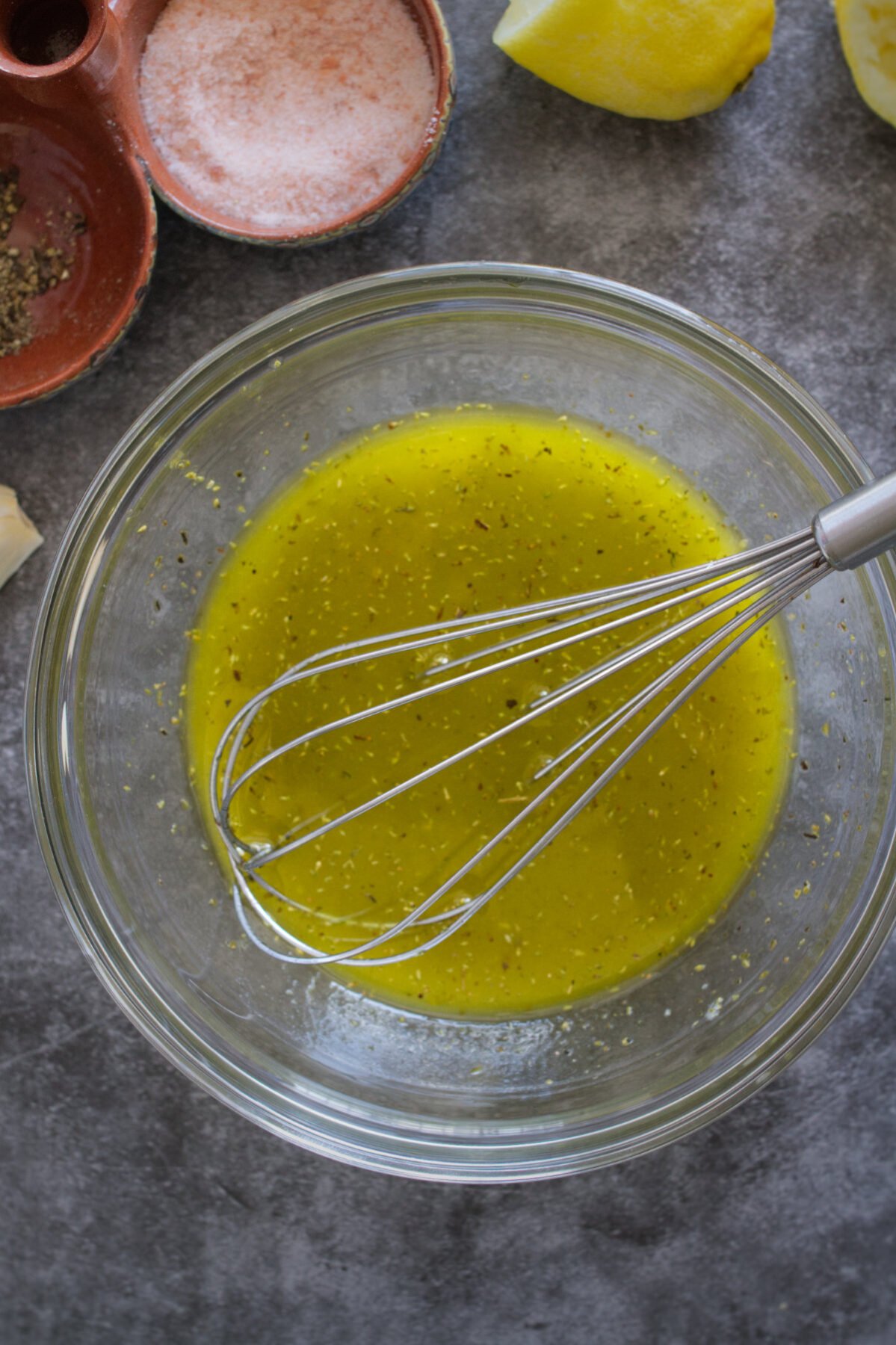
How to Use Oil in Marinades for Weight Loss
- Use Sparingly: A small amount (1-2 tablespoons) is enough to coat the chicken and help distribute the flavors.
- Use Good Quality Oil: Good quality olive oil such as extra virgin olive oil has numerous nutritional and health benefits compared to other cooking oils such as rapeseed oil or sunflower oil.
- Combine with Acidic Ingredients: Mix oil with lemon juice, vinegar, or yogurt to create a balanced marinade that tenderizes the meat without adding too many calories.
- Add Herbs and Spices: Enhance flavor with fresh herbs, garlic, ginger, or spices instead of relying on high-calorie ingredients.
How Olive Oil Can Help You Lose Weight
Olive oil can help you lose weight thanks to several factors.
- Appetite Regulation
- Improved Metabolism
- Fat Burning and Storage
- Hormonal Influence
Read more about how olive oil can help you lose weight in this article.
It is worth mentioning that olive oil is still a fat, so should be consumed in moderation and note that consuming too much will end up making you put on weight.
Studies of the Mediterranean diet suggest that How much you should consume depends on factors like your age and how active you are. It will also depend on how much other fat is in your diet.
For comparison, Greeks consume an average of at least five gallons (20 liters) per year, followed by Spain and then Italy — whereas Americans consume an average of 0.25 gallons (1.1 liters) per year.
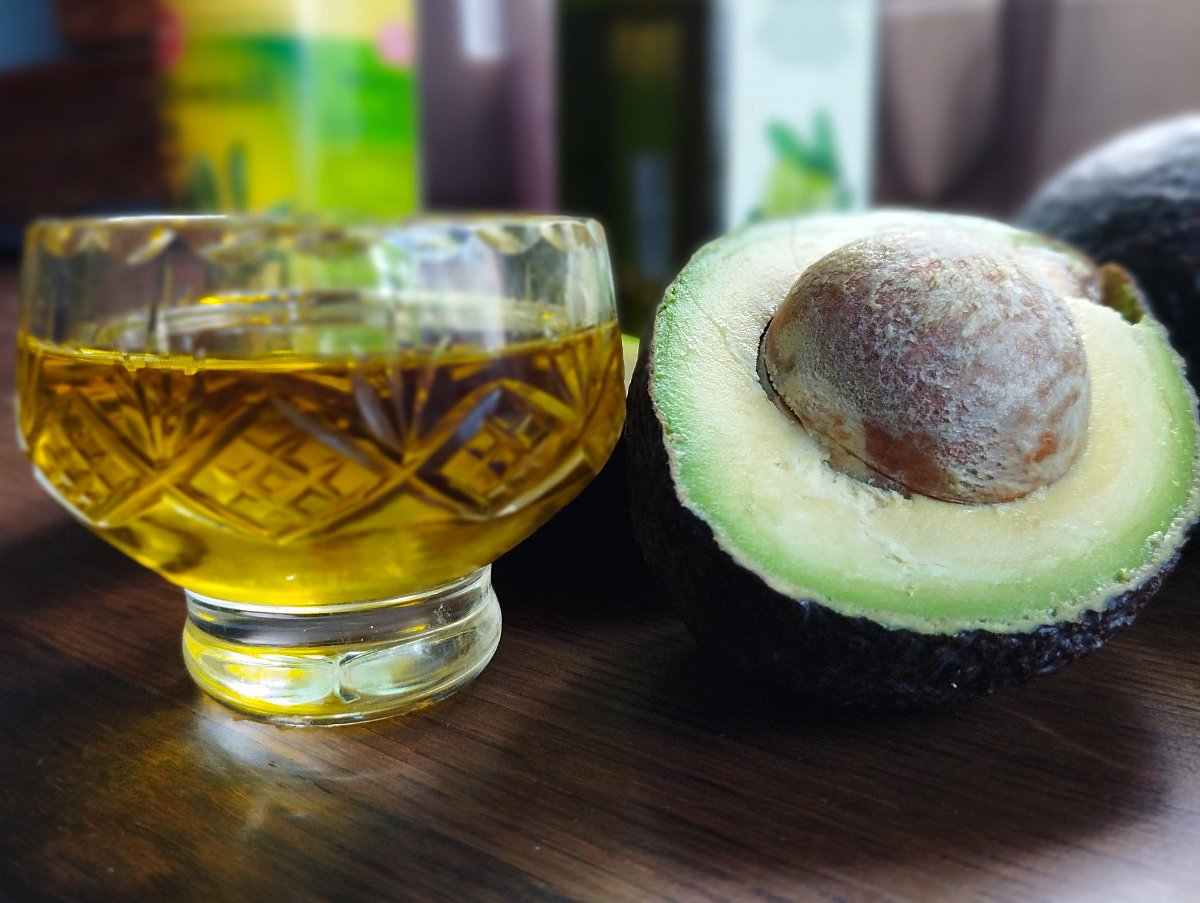
Summary – Which Oil is Better?
Both avocado oil and extra virgin olive oil (EVOO) offer significant health benefits, making them valuable additions to a balanced diet. Avocado oil, with its high smoke point, is ideal for high-heat cooking, such as frying and grilling, and is rich in heart-healthy monounsaturated fats and vitamin E, promoting cardiovascular and skin health. It also supports metabolic and eye health, making it a versatile choice.
On the other hand, EVOO is highly regarded for its potent antioxidants and anti-inflammatory properties, which contribute to heart, brain, and digestive health. It’s best used for low to medium-heat cooking or consumed raw in salads and dressings to maximize its health benefits. Ultimately, incorporating both oils into your diet allows you to take advantage of their unique properties, depending on your culinary needs and health goals.
Some Healthy Mediterranean Recipes:
- Spanish Padron Peppers Recipe (Pimientos de Padrón)
- Healthy Baked Mediterranean Chicken Thighs | Easy Sheet Pan Recipe
- Shredded Chicken Salad
- Mediterranean Potato Salad – No Mayo – Healthy VEGAN Potato Salad Recipe
- Mediterranean Pasta Salad + Tangy Lemon Herb Vinaigrette | Easy 20-Minute Recipe
- Fresh & Healthy Horiatiki Greek Salad + Easy Dressing Recipe
- Tabbouleh Salad Recipe: Light, Refreshing, and Delicious
- Classic Greek Salad with Kalamata Olives and Feta Cheese (Easy 5-Minute Recipe)

